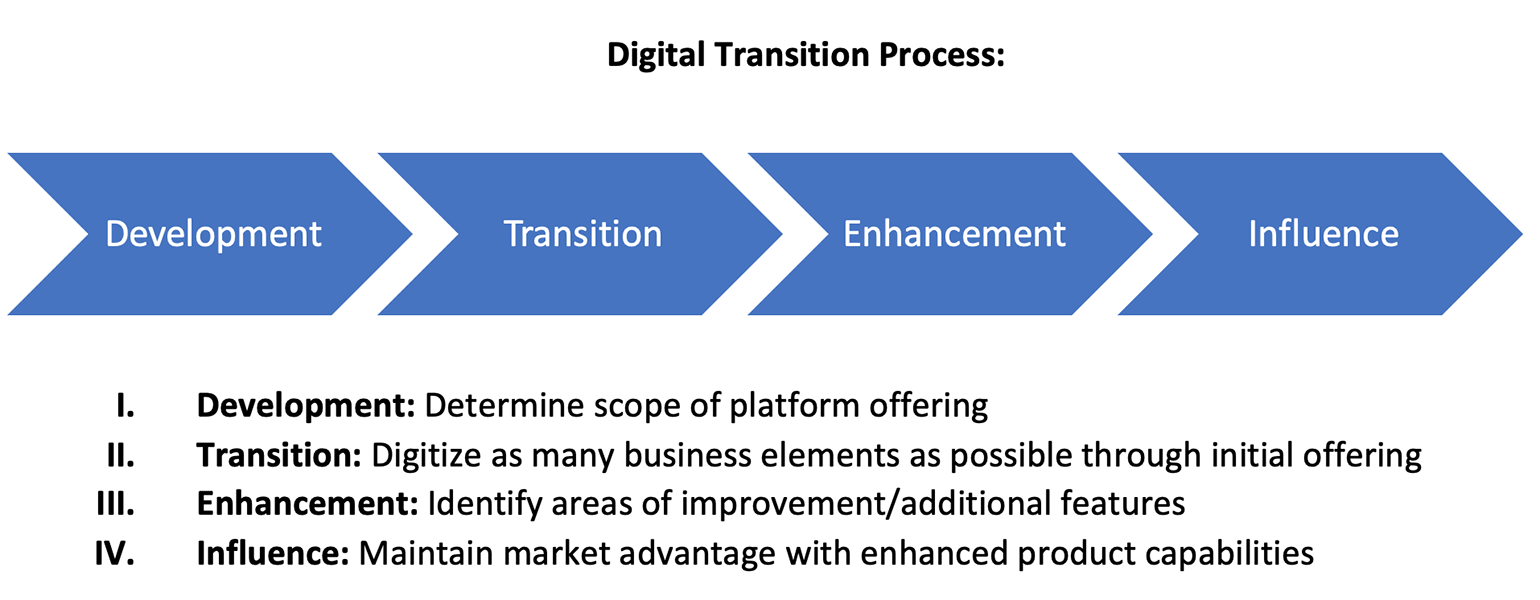The landscape of the wealth management industry is rapidly changing with the emergence of continued technological advances. Recent studies have confirmed that investors prefer to manage their money in the same way they now shop, socialize, communicate and even learn: by utilizing an array of digital tools, social media and mobile applications. It is reported that the use of technology in advisory firms has increased about 40% since 2017, subsequently leading to a decline of traditional face-to-face meetings between advisors and investors. Technology start-ups and entrepreneurs have sized this gap in the market by introducing artificial intelligence, big-data and robo advisors to replace traditional advisory services at a fraction of the cost leading to a decrease of registered financial professionals.
Considering this increased reliance on technology, it is essential for existing firms to build enhanced, digitized tools to improve the advisor/investor experience and relationship. As Dean Butler, head of retail wealth at HSBC UK states, “the digitization of the investment industry is happening. If you are not yet on board, you can expect to start losing business as you’re unable to meet customers’ ever-changing online needs.” As such, we believe there is a limited window of opportunity, and that in the next five to 10 years, more financial institutions will begin adopting this digitized approach.
By the year 2040, it is expected that the baby boomer generation will have transferred $70 trillion to their millennial heirs. After the completion of this transfer, investment firms will not have the same relationship with this generation and will have to rely on technological tools, such as a digitized platform, to combat this generational gap. It is estimated that about 63% of wealth management firms have determined that the use of traditional advising methods, such desktop software, are now ineffective and are taking measures of improvement.
That being said, several industry leaders, including Broadridge, JP Morgan, and Merrill Lynch, have already begun their digital transformation, rolling out new modern solutions to account for this shifting landscape. As such, for wealth management firms to ensure their market position, it is critical they immediately take advantage of this shifting market by developing their own digitized tools. By doing so, not only will they be able to reach more clients no matter their geographic location, but they will also be able attract and retain talent from an organizational perspective.
While it is important to recognize this shifting landscape, it is equally critical for financial institutions to understand the key features to include in such tools. By doing so, they will be able to build digitized platforms that can be further customized to cater to each of their registered financial professionals. While each current platform currently in circulation varies slightly, we have found certain consistencies that we believe to be the foundation of a successful platform.
To remain competitive in the market, it is essential such platforms include advanced analytic and data management capabilities, a fully functional CRM system, portfolio monitoring and drill-down capabilities, online trading and management capabilities, model portfolio comparison abilities, automated strategy functionalities and 24/7 communication methods.
Ideally, these features should be customizable to the point where advisors can update based off their personal preference. Peter Hess, president of InvestCloud Mid Markets, recognizes this shifting landscape. “Wealth managers have traditionally grown their businesses through personal engagement with their clients – in person or by phone engagement. They have perfected the experience for their clients through these methods, right down to the beautiful office space for the quarterly reviews. In the digital age, technology needs to support the same objective. Meet the client where they want to meet and prove that you know them intimately,” he says.

As James Cronk, director of financial services at Cisco adds, “Digital transformation [in wealth management] is unstoppable and in some cases, happening faster than expected.” It is critical that financial service institutions account for this shift in the landscape and expand their product offerings to include digitized platforms. By doing so, not only will they provide an enhanced experience for their existing clients, but they will be able to gain a market advantage by attracting the next generation of advisors in a shrinking industry. This area of financial advising is ripe with opportunity, and it is imperative forward-looking firms prepare to take advantage of this shifting environment to ensure their short and long-term success.
JJ Jeffries, Nikhil Sharma, and Kimberly Michaels are managing principals, and Michael Porter is a consultant at Capco, a global management and technology consultancy dedicated to the financial services and energy industries.


